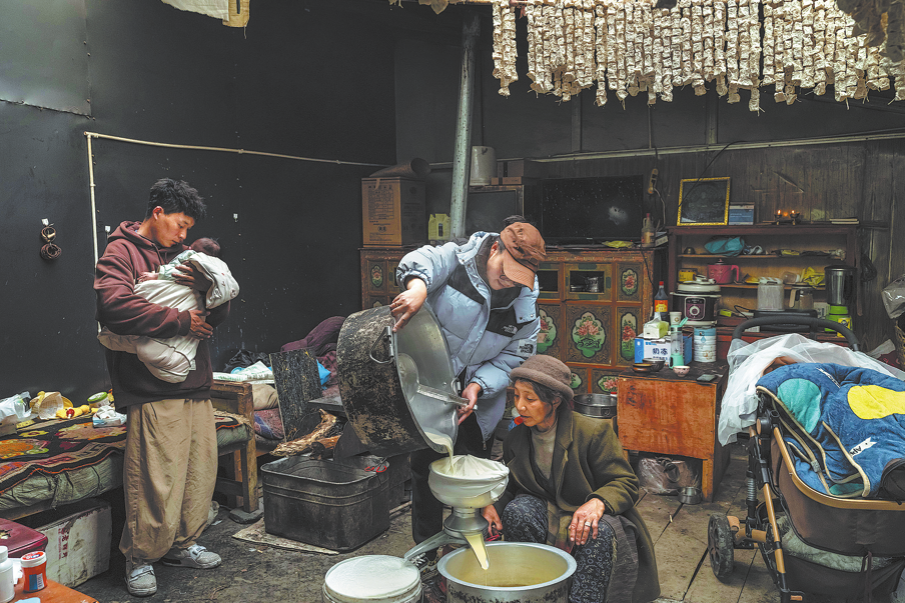Income, jobs and social security key to unleash consumption

Editor's note: China aims to basically realize socialist modernization by 2035. The 21st Century Business Herald spoke to Cai Fang, chief expert of the National High-end Think Tank of the Chinese Academy of Social Sciences, on how income distribution can help advance economic growth. Below are excerpts from the interview. The views don't necessarily represent those of China Daily.
China will face new constraints during the 15th Five-Year Plan (2026-30) period due to negative population growth and rapid aging, while also having to contend with an unfavorable external environment.
Greater pressure on economic growth will come from the demand side. Domestic demand forms the core of the demand side and is dependent on consumption. To overcome demand-side headwinds, it is essential to raise household income levels and enhance consumption capacity, particularly by improving social security for the elderly and enabling them to remain economically active.
Income distribution must also be improved. A better income distribution structure requires faster income growth for low-income groups and slower income growth for high-income groups, thereby expanding the middle-income group. China's ultra-large domestic market can be fully leveraged if the middle-income group, which is the main force of consumption, grows.
Improving the income distribution structure requires coordinated progress across primary, secondary and tertiary distribution. Primary distribution allocates income according to the direct contribution of production factors and gives priority to efficiency. China still has significant room for improvement in primary distribution, especially in the labor market. Although overall employment is relatively sufficient, structural unemployment still exists. The general unemployment rate can be reduced further, given that there is room for improvement in youth employment.
Much can be done to address the current labor-market challenges. First, efforts should focus on the elderly and the young.
Vocational training is best provided by enterprises because they know which skills their employees lack. However, due to the informal nature of the labor market, characterized by high job-hopping, companies have little incentive to invest in training. Therefore, these training programs should be financed by the government, which can shoulder the financial burden to reduce structural unemployment. As the share of older workers grows, training priorities must shift accordingly to help them acquire the relevant skills.
Meanwhile, the rise of flexible employment and the gig economy is an inevitable trend and will likely accelerate with the large-scale application of artificial intelligence. However, the new forms of employment should not be equated with informal employment. China needs to explore social-security mechanisms suited to these new forms and strengthen legislation to better protect workers' rights and improve job quality.
Secondary distribution is equally important. No matter how effective primary distribution may be, economic growth and higher labor productivity will not automatically translate into relatively equal incomes and living standards. In China, there is considerable potential to improve income distribution through taxation. Direct taxes are typically progressive: high-income earners pay more and low-income earners pay less. Because the share of direct taxes in China is relatively low, tax reform that increases their proportion would help improve income distribution.
Redistribution also depends on transfer payments, meaning the government must provide better, and more inclusive basic public services. Living standards are not determined solely by private income but also depend on public goods, which are vital for improving income distribution and preventing intergenerational poverty. Going forward, the government will need to increase social spending.






























